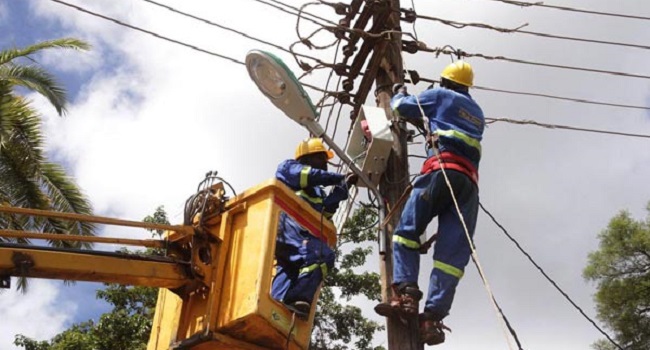Aliyu shifts blame on others, praises Buhari
By Jeph Ajobaju, Chief Copy Editor
Among promises Muhammadu Buhari made on the campaign trail for President in 2015 was to fix erratic power supply. But six years on the job he is still sending out surrogates to blame past administrations for it while he goes on leisure travels.
It costs Nigerians more than $14 billion a year to operate private power generators as unstable electricity is the country’s second biggest hindrance to social and economic development. Financial corruption is the first.
Power Minister Abubakar Aliyu has blamed erratic power supply on neglect by past administrations – from the years of Goodluck Jonathan to Olusegun Obasanjo and beyond.
That is true, but it is one side of the truth. The other side is that Buhari has failed to rectify the power supply problem. And he has failed to tackle other national problems, preferring to rule by propaganda of half truths, distortions, and falsehoods.
Aliyu spoke after a Federal Executive Council (FEC) meeting on Thursday, chaired by Vice President Yemi Osinbajo in Aso Rock.
Aliyu disclosed that all the 16 memos he presented were approved by the FEC and boasted that the Buhari administration has done more than its predecessors to improve power supply, as reported by The PUNCH.
In his view, Abuja is doing a lot to remedy the situation with huge investment in the power sector as evidenced in fewer grid collapses in the past few years.
He said the government has ordered new power equipment, and gave an assurance that Nigerians will soon see the benefits of ongoing investments.
__________________________________________________________________
Related articles:
National grid angling for new 2,672 mw to raise power supply
Neighbouring countries owe Nigeria N770m in power bill
Solar power system to generate $10m yearly in import substitution
__________________________________________________________________
Current power generation 5,000 mw
Aliyu lamented that current power generation is only about 5,000 mega watts (mw) and moaned about “weak transmission grid”.
His words: “Today, I presented to council 16 memos, which I seek for council’s approval and the council graciously approved all of them. At this point, let me say what these approvals will do to the nation’s electricity supply.
“As we’re all aware, the major problem we’re having in the electricity supply industry is to be able to evacuate sufficient electricity and distribute it. That is to say, we have a very weak transmission grid and distribution segment of the value chain.
“We may not be having much problem with generation. So, unless we’re able to strengthen the electricity grid, which is nationwide, and to expand, and to be able to evacuate what the grid can take to consumers, we will have a lot of problems ahead of us.
“So, what we’re doing currently through various and several interventions is to be able to repair the grid by constructing new transmission lines, bringing in new equipment to replace the old ones at our substations. So, that will release more capacity to the distribution leading to the customers.
“So, the operational capacity, as you all know now, is hovering around 5,000 mega watts and the transmission and distribution.
“So, these projects that we brought to council today and got approvals are all geared towards strengthening the willing capacity of transmission and towards distribution.
“Even though, as you all know, the distribution segment of the NESI [Nigerian Electricity Supply Industry] has been privatised, we cannot fold our arms and allow them to continue not to do much in order to evacuate what the transmission can bring.
“But as it is now, even the transmission is not that strong. So, we need to put more investment into the transmission so that we can improve the capacity of the TCN [Transmission Company of Nigeria] to be able to take up enough electricity from the generation.
“So, these memos, 16 of them, are all geared towards achieving what I’ve just explained.”












